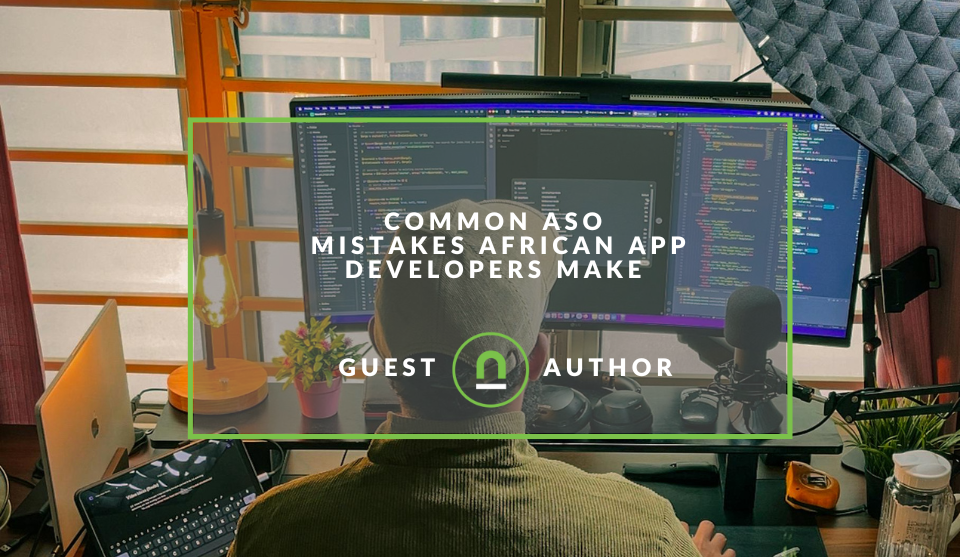Recent posts

Money Talks
XRP vs. Stablecoins: Which Is Better for Cross-Border Payments in 2026?
28 January 2026

Press Releases
Sleep Expert Cautioning Against TikTok’s ‘Mouth Taping’ Trend
28 January 2026

Press Releases
Why Vintage Watches Are the Hottest Trend in 2026
27 January 2026

Press Releases
Africaworks Accelerates The Rollout Of Real Estate Investment Platform
20 January 2026
Popular posts
Extravaganza
Trending Music Hashtags To Get Your Posts Noticed
24 August 2018
Geek Chic
How To Fix iPhone/iPad Only Charging In Certain Positions
05 July 2020
Extravaganza
Trending Wedding Hashtags To Get Your Posts Noticed
18 September 2018
Money Talks
How To Find Coupons & Vouchers Online In South Africa
28 March 2019
Video Conferencing Can Bring Education To Rural Areas
20 August 2019 | 1 comments | Posted by Abbey Smith in Academia
Distance education is a promising way of learning for people from isolated areas, including residents of rural areas and other people who cannot achieve the goal in another way.
The spatial separation of a student and a school ceases to be a barrier in the acquisition of knowledge. Also, all the educational information doesn't need to be concentrated in one place.
A teacher, organizing the process of students' distance self-education, is tasked with mastering as many information technologies as possible.
In this case, he or she will be able to apply these technologies depending on the content of the specific training program, and per the future professional activities of students.
Distance learning becoming more common
The didactic (technological) distance education model was developed at the the Open University of Great Britain, which is why it is often called British or European model.
It is used in many countries where educational institutions close to the prototype were created (for example, India, Canada, Australia, Germany, South Africa, Russia).
The British model provides the implementation of the principle of distance education that is independent of space, time, educational qualification, expressed in the formula "Anyone, Anytime, Anywhere", does not require an expensive telecommunications network and provides an equivalent to the full-time education level of training.
The US DL model was formed as a result of initiatives by several American universities to use television first, then digital video to broadcast classrooms to audiences (branches) remote from the university campus.
The American model is based on the interpretation of preschool education as a type of full-time teaching, in which direct audio-visual contact of the teacher with the audience is replaced by telecommunications mediated by technical channels and facilities.
Lack of opportunities for rural residence
Unfortunately, it is necessary to ascertain the fact that residents of rural areas and remote areas of our country do not have enough opportunities to receive primary and additional education or, for example, advanced training, not to mention higher education.
Traditionally, there is an outflow of the best teachers to large centres. The regional educational institutions, as a rule, do not have adequate financial and information resources to retain highly qualified specialists or attract additional ones.
In such conditions, it is evident that universities, corporations and commercial training centres need to create, develop and advertise distance-learning programs.
The rural population and it's adult part are a particular category of students for whom education acts as a means of social protection and adaptation in a rapidly changing reality.
How to bridge the gap with the rural economy
In this regard, the distance education technologies can become the leading and effective mechanism for obtaining or raising the educational level of different age categories of the rural population, in particular, the adult.
Due to relatively low costs and high information content, distance education is the most socially oriented among other forms of knowledge, in particular, when solving the problem of professional retraining of adult specialists living in rural areas.
Making distance education the norm
The distance education system also forms a new outlook in rural adult students to receive education: continuing education is becoming the norm for them, enhancing their active life position, presenting equal opportunities in education and access to world information and national educational resources and by virtue of their abilities contributes to a more in-depth perception of educational material.
Trained professionals, including teachers, will be able to organize the educational process using distance-learning technologies, regardless of the student's location, and the trained student will be able to acquire the necessary knowledge independently through continuous education using information technologies.
Modern information technologies provide new didactic opportunities, namely, interactive communication between a student and a teacher.
The benefits of distance learning
One of the most exciting information and educational environments of the university is currently the video conferencing system (VCS).
Under video conferencing, they mean multilateral audio-visual communication sessions through data networks, for the carrying out of which modern multimedia equipment with a wide range of possibilities and high quality of communication is used.
The main advantage of videoconferencing is the ability to see and hear your interlocutor on the screen simultaneously. You can use the image of the necessary drawings and diagrams, demonstrate various products during the discussion of multiple issues.
In this case, you can see the reaction of the interlocutor, which is very important in the learning process. Video conferencing is the most effective audio-visual interactive technical tool in comparison with television and other forms of distance learning.
The main advantage that the educational system of the university receives with the transition from traditional types of remote communications to video conferencing is a significantly increased speed of contact with units located in other cities.
As a result, the efficiency of the educational institution as a whole increase and in particular, travel expenses are reduced.
In conclusion
To conclude, Ambleside Primary writing service is sure that the most critical factors in the revival of the village are the improving of the educational system of a qualitatively new level, the goal of which should be the education of competent people who continuously improve, increase their professional level, their qualifications throughout their lives.
The emergence of a market economy and the development of a diversified economic relationship in the countryside have introduced changes in the social order of society, which is imposed on rural areas education.
The introduction of the practice of distance education through video conferences is undoubtedly a unique opportunity for residents of such areas. It is safe to say that future scholarship will succeed with the help of information technology.
Tell us your story
Would you like to write for nichemarket just like Abbey has? Find out how to submit a guest post and when you're ready, you can contact us.
Are you looking to promote your business?
South African educational businesses can create your free business listing on nichemarket. The more information you provide about your business, the easier it will be for your customers to find you online.
Registering with nichemarket is easy; all you will need to do is head over to our sign up form and follow the instructions. If you require a more detailed guide on how to create your profile or your listing, then we highly recommend you check out the following articles.
Recommended reading
If you enjoyed this post and have time to spare why not check out these related posts and dive deeper down the rabbit hole that is education.
You might also like
Common ASO Mistakes African App Developers Make
09 January 2026
Posted by Daniel Davis in Industry Experts
ASO is Localisation, Not Translation: Failing to research specific local search terms and cultural nuances is the biggest ASO error in African market...
Read moreThe Rise of AI Computing Power Assets
16 January 2026
Posted by Rehman Ali in Press Releases
An introduction to Cloud mining and monetising cloud computing as DLMining Reshapes Wall Street's New Anti-Inflation Investment Paradigm
Read more{{comment.sUserName}}
{{comment.iDayLastEdit}} day ago
{{comment.iDayLastEdit}} days ago
 {{blogcategory.sCategoryName}}
{{blogcategory.sCategoryName}}


